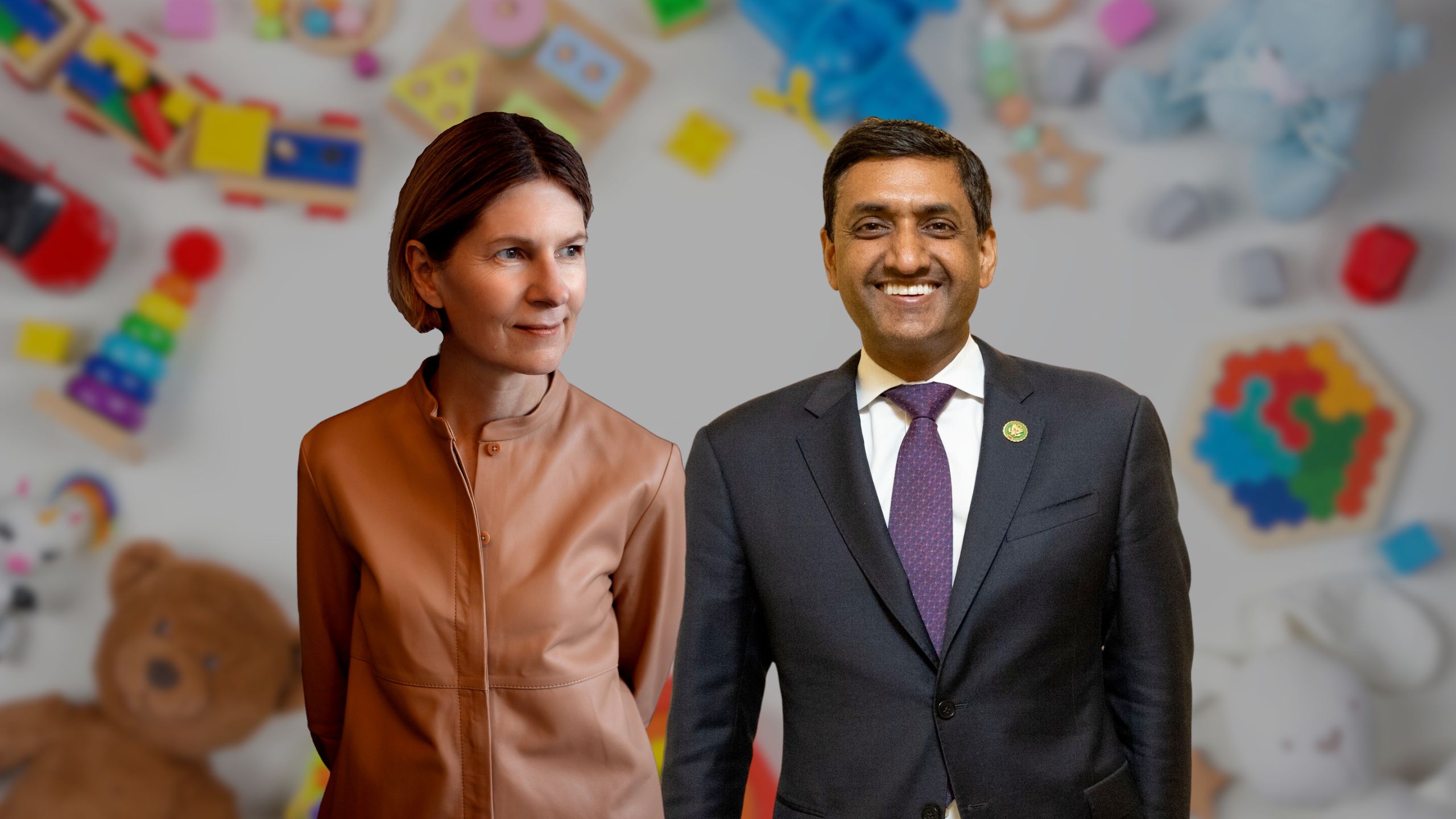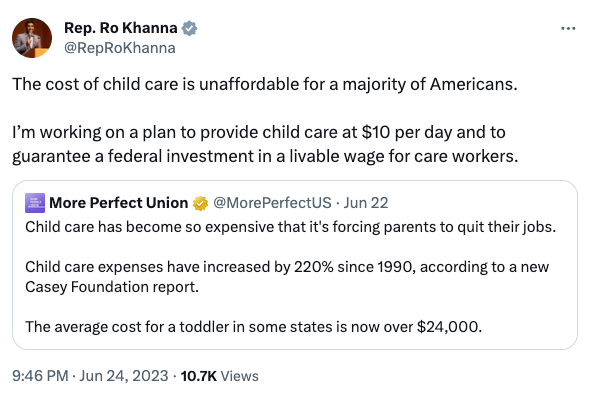While we’re taking Early Learning Nation Studio on the road less often during the pandemic, we’re offering recaps—Top Takeaways—from important conversations, town halls, webinars and virtual events from the Early Learning field. Visit our Early Learning Nation channel on YouTube for interviews with leaders from education, child development, business, politics and more.
On Tuesday, September 19, Capita hosted a “virtual fireside chat” with Ro Khanna, (D.-Cal.) and Wendy Doyle, president and CEO of United WE. Elliot Haspel, Capita’s director, Climate and Young Children (and Early Learning Nation columnist) hosted the conversation.
In bluntly stating, “The system we have doesn’t work,” Rep. Khanna made clear that short- and long-term solutions to the child care crisis require government support. Haspel agreed, contending, “This is an issue that affects all Americans.” Doyle announced the formation of a National Child Care Commission of industry leaders, set to launch in early November.
Here are our takeaways:
1. “The math does not work. It will never work.” Haspel quoted Annie Lowrey’s October 2022 Atlantic essay—“The Reason Child Care Is So Hard to Afford”—to underscore the impossibility of a child care system without substantial public investment. Among the far-reaching consequences enumerated by Doyle: family planning is being put on hold and birth rates are dropping.Rep. Khanna said the cost of care is piled atop the nation’s “affordability crisis” of everyday items. Without support for child care workers and for quality child care, he said, families can’t move where they want and can’t take advantage of career opportunities.
“The American Dream is slipping away for a lot of people,” he said. The solution is what he referred to as “New American Patriotism,” which would bring about more good jobs that pay family-supporting wages and bring costs down for housing, health care, child care and education.
👉 Over Half of Families Spend More Than 20% of Income on Child Care (First Five Years Fund)
2. Women bear the brunt of the cost. The child care workforce is overwhelmingly female. In heterosexual couples, the woman is far more likely to make career sacrifices to meet child care needs. Women’s salaries are 83.7% of men’s, and women make up just over a quarter of Congress. Doyle highlighted one route toward equity: United WE’s Appointments Project, which empowers women and strengthens communities by improving the gender diversity of civic boards and commissions.
Another step would be paid family leave. “Every other industrialized country has it,” Doyle stated. While Rep. Khanna appreciates the steadfast work of Senators Elizabeth Warren and Patty Murray, he maintained, “Child care can’t just be a women’s issue. This is an American economic issue.” Bipartisanship is also vital, and he credited Nancy Mace (R.- S.C.) for joining forces with him to form the Bipartisan Child Care Caucus.
👉 85% of women say they are unemployed because they are caring for a child, compared to just 15% of men (Newsweek)
3. The most important years demand investment. The evidence for nurturing young minds is clear, and nobody has presented it more compellingly than Nobel Laureate James Heckman. Rep. Khanna called it a “critical issue to the future of this country” and lamented the number of children starting kindergarten “at huge a disadvantage.” Citing Heckman, he argued that nutrition, education and loving care are predictive of college and family success.
In addition to government funding, Doyle called for more public-private partnerships, saying, “It’s going to take all of us.” United We’s National Child Care Commission will conduct a national survey of women business owners to understand the child care challenge. A state-by-state review of licensing requirements is also planned, with the goal of cutting red tape and supporting entrepreneurship.
👉 OPINION: How a Faulty Generalization is Sabotaging Early Childhood Policy
4. A fix for the short term. With federal funding expiring at the end of September for 70,000 centers, addressing the child care cliff was the first order of business for the panel. Haspel predicted that fee increases are going to come before closures, saying, “Even as we’re fighting for systemic change, we need short-term solutions.”
Rep. Khanna pointed out that this moment coincides with partisan tussles over the federal budget and encouraged viewers to advocate on behalf of the Child Care Stabilization Act, which would provide $16 billion in mandatory funding each year for the next five years. Doyle called it “interim funding while we come up with systems.”
👉 Universal Child Care Neither New Idea Nor Unprecedented
5. A fix for the long term. Ultimately, every U.S. family with young children should have access to quality care. The system we develop may or may not resemble our public K-12 schools, but the moderator and panelists agreed that freedom to choose what’s right for your child is essential.
Rep. Khanna admitted that his ambitious proposal to send families $10 per day (which amounts to $2,400 per year) would take years to come into fruition, but he reminded the audience that the country had a similarly ambitious program during World War II. He further clarified that the money would also go to stay-at-home parents, who have what he called “the hardest job there is.”

Mark Swartz
Mark Swartz writes about efforts to improve early care and education as well as developments in the U.S. care economy. He lives in Maryland.




